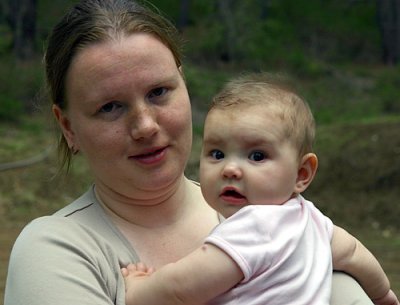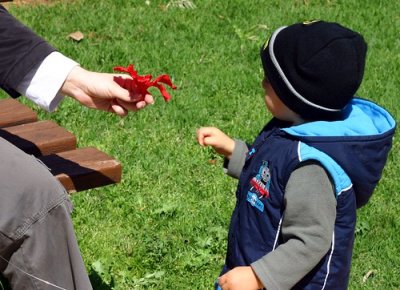Co-Parenting with a Narcissist Ex
Using Psychodynamically-informed CBT to Help Co-Parent with a Narcissist Ex
Navigating divorce and single parenting are monumental challenges. Yet, the journey takes an unexpected turn upon discovering that your ex-partner might be a narcissist. What next?
Initially, there’s a moment of relief—an awakening to the possibility that, contrary to what your ex insisted, the end of the relationship might not be entirely your fault.
Through insightful discussions or while working with a therapist, it may have dawned on you that relationships with a narcissist are always complex, rarely evolving into the supportive partnership you envisioned for yourself and children.
Then there’s the concern for the children. Initial relief may quickly give way to anxiety, pondering the daunting task of co-parenting in this situation.
This article sets out to
- Outline what a narcissist is
- Describe how narcissists operate as partners and ex-partners
- Describe how narcissists operate as parents
- Show a case study on how one father managed difficulties with co-parenting in this situation using psychodynamically-informed CBT
Understanding Narcissism
The diagnostic criteria in the DSM-5: Narcissistic Personality Disorder (NPD) is a personality disorder with a long-term pattern of abnormal behaviour characterised by exaggerated feelings of self-importance, an excessive need for admiration, and a lack of empathy. People affected by it often spend a lot of time thinking about achieving power or success, or about their appearance. They often take advantage of the people around them. The behaviour typically begins by early adulthood and occurs across a variety of social situations.
This describes the deep end of personality disorder, but like many diagnoses, this is a spectrum disorder.
A Narcissist as a Partner
Narcissists are in a relentless pursuit of ‘narcissistic supply,’ a term that captures their insatiable need for admiration and validation to fill an underlying emptiness. Their relationships often resemble a meticulously directed play, with partners and children unwittingly cast in roles designed solely to prop up the narcissist’s ego. This dynamic, stark in its lack of empathy, can leave those close to the narcissist feeling exploited and inconsequential.
The allure of a narcissist is undeniable, marked by an intoxicating blend of charm and charisma. However, these enticing qualities frequently disguise manipulative and self-serving behaviours. Recognizing the role you’ve been scripted to play—be it adorer, supporter, or a combination thereof—is critical, particularly as the relationship unfolds or concludes.
I have been almost saddened recently when some of our more narcissistic world leaders got their well-deserved comeuppance. As having some of their more egregious narcissistic behaviours on display had previously allowed me to use them as examples in the therapy room—and not in the way they would like. It is beyond the scope of this article to extend our understanding of their psychological plight, (they don’t often come to therapy because it is everyone else’s fault, right?) But the book Sad Little Men by Richard Beard(1) is an interesting read.
So, we can see that this way of operating is pretty tough for those around narcissists, but surely this would not extend to their kids?
The Narcissist as Parent
Children, with their innate adoration for their parents, become prime targets for narcissistic supply. Outright abuse can be almost easier to spot, as narcissistic parents can look so “normal”. They may well have spent a lot of time keeping others on message. “Everyone else thinks I’m fantastic, so surely the problem is you”, can be a common and confounding response.
The literature on the harm inflicted by narcissistic parents is extensive, revealing both overt and subtle forms of damage. Books like Dear Daughter of a Narcissistic Mother by Danu Morrigan and Will I Ever be Good Enough? by Karly McBride delve into these dynamics, offering insight and support to those affected.
Navigating Co-Parenting with a Narcissist
Adjusting to co-parenting post-separation introduces new challenges. Narcissists may amplify previously used tactics—such as insisting on their righteousness or playing the victim—to manipulate situations to their advantage. Or they may drop their children completely.
Strategies for dealing with these behaviours include the following:
- Emphasising personal boundaries and self-care
- Engaging in psychoeducation to understand narcissistic behaviours
- Implementing behaviourist principles to reduce enabling behaviours
- Practicing cognitive restructuring to mitigate triggering interactions
Case Study: Bill and Narcissist Ex Wendy*

By: Kate Williams
Bill had had a brief relationship with a younger, fragile woman, Wendy, and somewhat unexpectedly found himself a father to a baby daughter as well as his grown-up son from a previous marriage. This relationship broke down, and Bill was keen to do the right thing by his daughter, short of recommencing the relationship with Wendy.
What had Bill been providing in the relationship?
As an older man, Bill seems to have been the provider of all kinds of practical and financial support, wisdom and guidance to this younger woman.
However, after the relationship broke down, it turned out that Wendy had more, rather than less, need of Bill. She needed him to be completely in the wrong at all times. Maybe, at some level, she had decided she could not “win” at being the better parent, but she could “score points” by portraying herself as the most hard done by.
Whatever he did, Wendy found fault with. Her main complaints were that Bill did not want to spend time with his daughter, his life was better than hers and he was (to her mind) already dating other women.
Psychoeducation

By: mistahbloo
To address the situation, Bill engaged in psychoeducation to understand the dynamics of narcissism better. He learned to implement and defend his boundaries more effectively, moving away from behaviours that enabled Wendy’s dependency. He also adopted cognitive-behavioural techniques to manage and respond to the conflicts less reactively, focusing on his daughter’s needs rather than getting drawn into unproductive arguments.
Through these strategies, Bill began to recognise and avoid the triggers in his interactions with Wendy. Leading to more assertive and less confrontational exchanges. Over time, he developed a more sustainable approach to co-parenting.
Eventually, he formed a structured parenting plan that formalised his and Wendy’s responsibilities and expectations. This plan helped minimise conflicts and allowed Bill to focus more on his daughter’s wellbeing, demonstrating his growth and resilience in navigating the challenges of co-parenting with a narcissistic ex.
Conclusion
While the path to effective co-parenting with a narcissist is fraught with challenges, it also offers opportunities for personal growth and empowerment. By understanding narcissistic behaviours and adopting strategic approaches, individuals can foster a healthier environment for themselves and their children.
*Names have been changed, and permission has been granted for use in this article.
-
Beard, R. Sad Little Men: Private Schools and the Ruin of England. London: Harvill Secker; 2021
- Morrigan, D. Dear Daughter of a Narcissistic Mother: 100 Letters for your Healing and Thriving. London: Dartman, Longman and Todd; 2017
- McBride, K. Will I Ever be Good Enough?: Healing the Daughters of Narcissistic Mothers. New York: Free Press, Simon and Schuster; 2008
-
Behary, W. Disarming the Narcissist: Surviving and Thriving with the Self-Absorbed. Oakland, CA: New Harbinger; 2008







